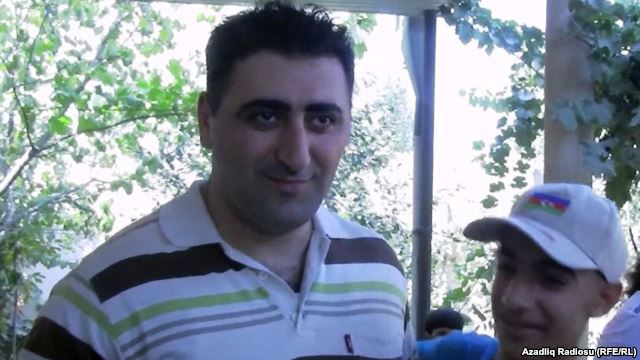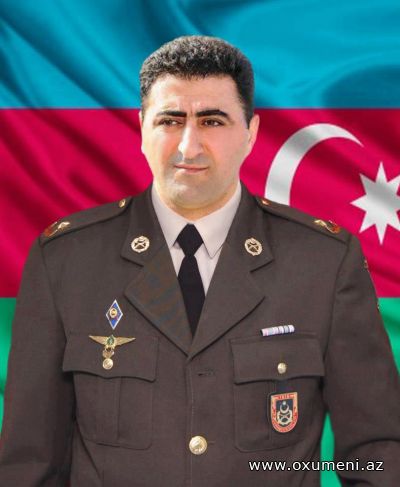The Axe Murderer Who Became A National Hero September 8, 2013
Author: Beach Combing | in : Actualite, Contemporary , trackbackNations and cities have passionate rivalries with their neighbours. Beach, for example, grew up in Britain a country where national identity is based not on love of the Queen or respect for the rule of law but rather on disliking the French. However, the whole British-French thing (‘the best of enemies’) is a fairly tame affair: the French sensibly abstain and even the English ‘dislike’ the French only after a fashion; if you, a Brit, came home to Maidenhead with a French boyfriend or girlfriend you’d be seen as immeasurably cool. But in other parts of the world dislike just doesn’t cut it, you have to HATE. Take the difficult relations between Armenians and Azerbaijanis in the Caucasus. These two people look the same to outsiders and have a great deal of common cultural roots: but linguistically and religiously they have carved out different ways of living and these depend on despising and, where possible, killing each other. Several vicious conflicts have erupted between these two ethnic groups over the centuries. In the twentieth century, alone, the First World War ended with an orgy of violence, the Soviet period wound down with, in 1988, the Sumgait Pogrom (it was a pretty ‘impressive’ achievement to commit ethnic violence under an authoritarian state that refused to accept the existence of ethnic groups) and then the Soviet period ended properly with the Nagorno-Karabakh War over a few mountain communities in the newly independent Azerbaijan. And what did all these conflicts have in common? Well, they involved huge civilian casualities: there was none of that sentimental stuff about sparing women and children, which quainter countries outside the Caucasus have pioneered. And this leads us to the extraordinary story of Ramil Safarov, axe-murderer (no risk of libel here, this is a simple statement of fact) and national hero.
Armenia and Azerbaijan put down their weapons in 1994, but there was extraordinary bitterness on both sides and this is the background to the extraordinary export of Azeri-Armenian violence in 2004 to, of all places, Hungary. In January of that year RS was sent on a NATO English-language program in beautiful Budapest. He was 27 and an officer and might have been expected to act with a certain restraint in difficult situations. Instead, he learnt that there were two Armenian officers – who had the temerity to say hello to him – and he went all cujo. He walked out to the local supermarket bought an axe and a honer and sat in his room preparing his weapon. Then he walked into the room where one Armenian was sleeping in his bed, hacked him to death; then went after the second Armenian, who was luckily behind a locked door. He was tried in Hungary and sentenced to at least 30 years in prison for murder. So far we have a tragic episode, based on the activities of someone who was playing out national tensions in a foreign capital. RS did come from an Azeri family in the lost territories of Nagorno-Karabakh, he allegedly himself had lost family members in that ghastly conflict. There was probably, then, a personal history that contributed to this crime, though some of the details are contested. But there can be no question that it was a crime and surely Azerbaijan would recognize this: the victim was not a war criminal but an officer in the Armenian army. In fact, Azerbaijan had mixed sentiments and from the beginning some Azerbaijani celebrated the axe-murderer as a national hero. Beach’s favourite comment was the human-rights commissioner [!!] for the nation who explained how ‘Safarov must become an example of patriotism for the Azerbaijani youth’. Yikes.
Then, Ilham Aliyev, the unusual (being polite) President of Azerbaijan decided to make things interesting. In 2013 he negotiated a transfer for RS back to Azerbaijan where he would serve out his sentence: a sensible international mechanism encourages prisoner exchange so that prisoners go to prison in their own countries, rather than wasting tax payers’ money elsewhere. However, instead, of being escorted to a cell RS was welcomed as a returning son by the President and his supporters. He was promoted to major, given a free house and eight years of back pay. Killing innocents with an axe clearly is a way to prosper in Azerbaijan. Nor was this popularity limited to the government. RS has over 49,000 Facebook fans and someone has even created a youtube video with evocative images of RS looking all manly and axe-wieldingly. Azerbaijan may have lost the battle for Nagorno-Karabakh but they won the return match, all this implies, in a bedroom in Budapest when a sleeping man failed to wake up as a blade came down on him. Of course, the Armenians are absolutely livid and just to give you a sense of how deep the hate runs here is a video from the other side: image above; the level of ethnic stereotyping in the cartoon montage is terrifying. Then if you really want to enjoy yourself spend quarter of an hour reading the comments under this Hungarian post. English is the language of discourse between Armenians, Azeris and a few Hungarians. It is the closest you can get to a digital pogrom. Britain’s ‘hate’ for the French, the Irish shaking their heads about the Brits or the US badmouthing Canada seems so first grade in comparison: Beach writes this as a passionate believer in primary education.





